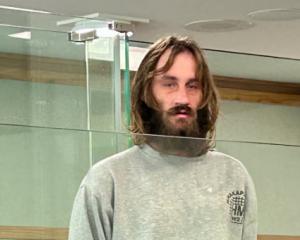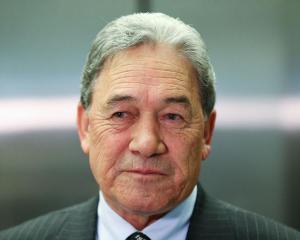
Makes Sense co-founder Jo Robertson told RNZ that New Zealand was more than a decade behind other comparable countries.
"We're just watching and waiting, looking and seeing... and while we do that, kids all over the country are seeing horrific content.
"They're increasingly getting groomed and exploited. It's impacting their mental health, their body image, their relationships... there are significant ramifications."
Robertson said there was a lot of data on the harm caused.
"There's been a 550 percent increase in grooming reports on Snapchat alone, and we know that social media channels account for about 35 percent of how young people experience grooming-type behaviours, so adults seeking out their company or their content.
"We have a rapidly increasing, deeply problematic, actually, is going to be a traumatising issue for our young people."
Last month, the New Zealand Herald reported the police had received 1549 referrals by Snapchat in 2024.
There were 617 in 2023, 275 in 2022, and 198 in 2021.
A spokesperson for Snapchat told RNZ it had introduced a new reporting mechanism last year which accounted for the increase in referrals.
They said the platform now had "robust measures in place".
"We use proactive detection to find and remove content exploiting minors, and if we are made aware of any such content - whether through our proactive detection technology or confidential in-app reporting tools - we remove it, lock the violating account and report it to authorities."
An internet insights survey conducted by InternetNZ found 71 percent of people were either extremely or very concerned about children accessing harmful content online.
In March, InternetNZ chief executive Vivien Maidaborn told RNZ's Morning Report that New Zealand was "seriously falling behind the rest of the world".
"The government needs to prioritise changes to protect people," Maidaborn said.
"The reason why so many of us are concerned about children accessing harmful online content is because we know that our laws and processes are not adequate for the online world."
While TikTok announced new features that gave parents additional tools to set boundaries for their children on Thursday, Robertson said social media platforms could not be relied on to keep children safe without regulation.
"My experience is that they still, interestingly, say things that they're doing, but it's not actually the experience of people on the ground.
"I don't know if their technology is slightly flawed, or they're doing different things in different countries, but I've spoken with Snapchat, as an example, or TikTok, you know, directly, and we'll say, 'Hey, what's happening here?'
"And they'll say, 'Oh, we've fixed that.' - but it's not fixed."
Make Sense co-founder Holly Brooker also told Morning Report that the new features were not enough.
"There's a lot of trust. There's high trust in these safety barriers that are kind of put into place by the platforms, and my experience is that they're just not actually good enough for our young people," Brooker said.
"We've got a huge systemic issue in New Zealand in addressing online harm. We're really neglecting to address that.
"We have no legislative framework in place. We have no kind of enforcement mechanism."













